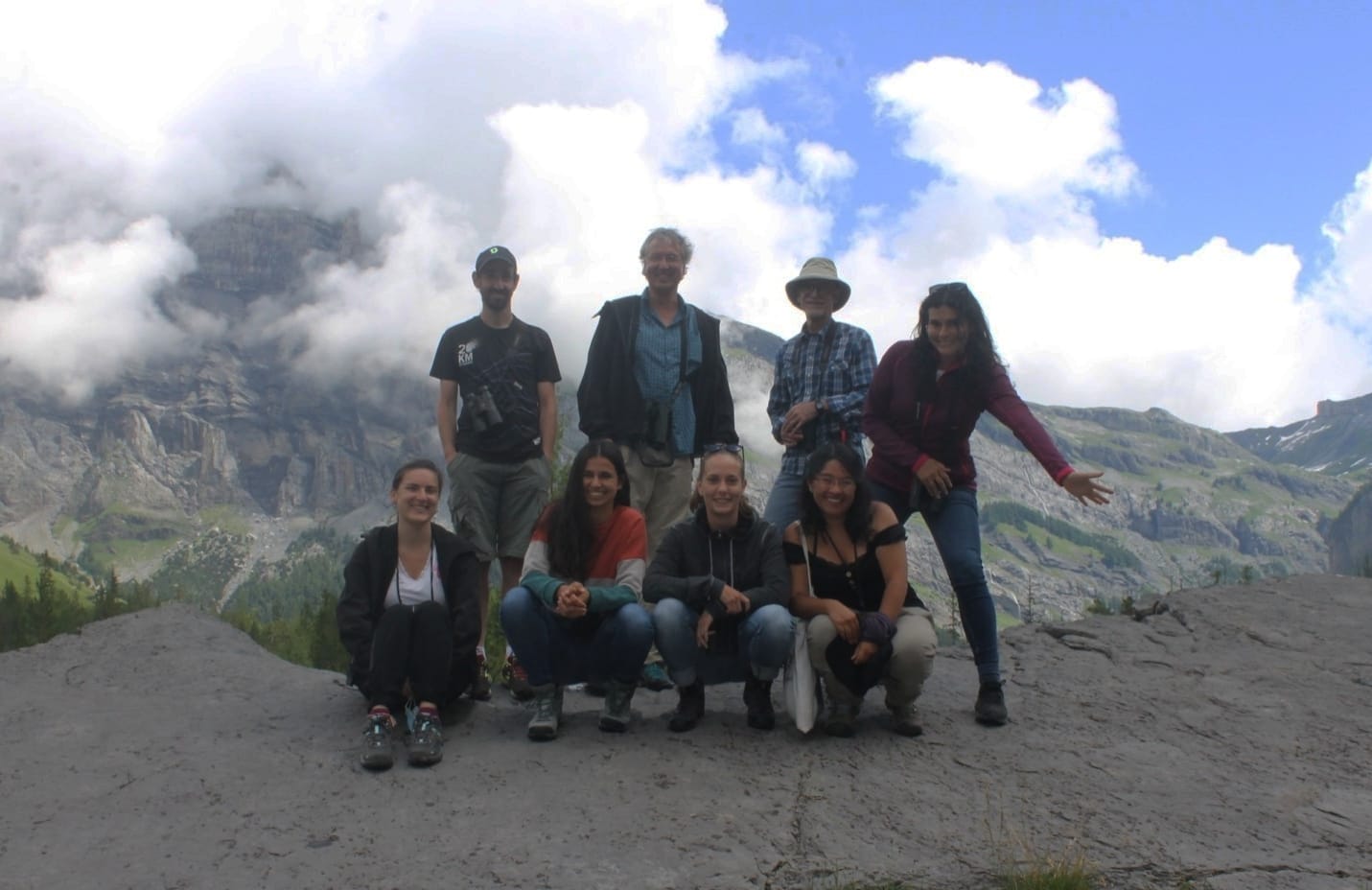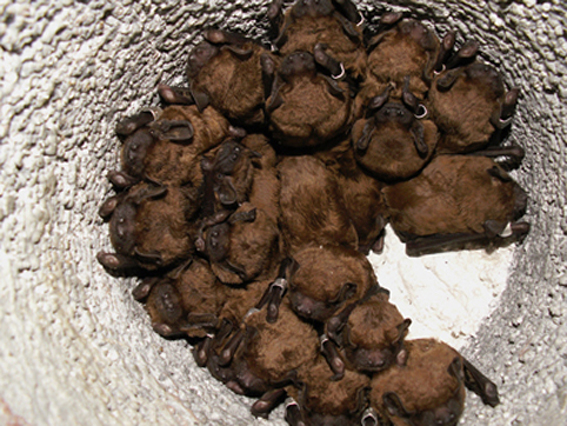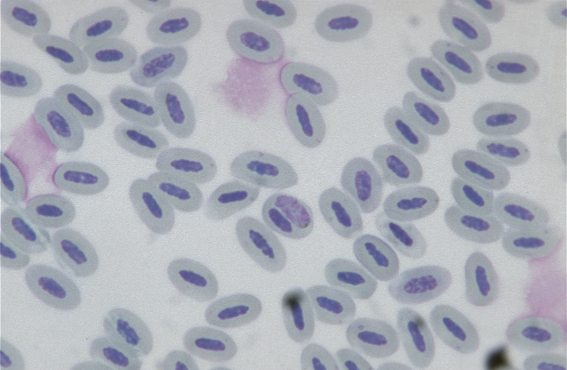
Bats and ectoparasites
We are investigating the micro-evolutionary relationships in one host-parasite system consisting of different bat species and species of obligatory parasitic mites that spend their entire life on their bat host (Spinturnix sp). This research combines:
1) a comparative approach in the field (parasite population dynamics and reproduction vs. host condition, sex and immunocompetence).
2) an experimental work involving bats and parasites kept in captivity.
3) molecular phylogeny of european Spinturnix species.
4) phylogeography and population genetics of the greater mouse-eared bats Myotis myotis and Spinturnix myoti.
5) phylogeography and population genetics of the Maghrebian bat Myotis punicus and Spinturnix sp. Moreover we are presently modelling vital parameters using capture-recapture data.
Collaborators: Nadia Bruyndonckx, Raphaël Arlettaz (University of Bern), Jérôme Goudet, Manuel Ruedi

Avian malaria
Although avian malaria is a very common and widely distributed parasite, the complex interactions between the 3 actors of this particular bird-mosquito-Plasmodium natural system remain largely unknown. Recently, the development of molecular genetic screening techniques has revealed high diversity and higher prevalence of avian malaria than previously thought. Moreover the development of real time quantitative PCR (qPCR) has allowed the quantification of parasitaemia and opens new fascinating field of investigations in this host-parasite system. Despite the growing interest in avian malaria in evolutionary biology, the role played by the vector in this host-parasite relationship remains to be investigated.
This project focuses on avian malaria in the great tit Parus major and its natural mosquito vector, looking at different aspects of interactions between parasites and hosts.
Collaborator: Olivier Glaizot (Museum of Zoology, Lausanne), Luca Fumagalli

Group Leader
External Scientific collaborators
Post-docs
PhD Students
- Claudio Augugliaro (co-direction with Dr Fridolin Zimmermann)
- Clara Castex
- Soledad Santillan Guayasamin
- Philippine Surer (in collaboration with Dr Fridolin Zimmermann, Kora)
Staff
Master Students
- Cécile Weber (co-supervised with Dr Fridolin Zimmermann)
- Kerrian Chauvière (co-supervised with Dr Nina Gerber, Kora)
- Alyzée Tassel (co-supervised with Prof Jérôme Goudet)
Former Group Member
Former Post-Docs
- Dr. Nicolas Fasel
- Dr. Tania Jenkins
- Dr. Romain Pigeault
Former PhD students
- Dr Nadia Bruyndonckx
- Grégoire Castella (co-direction with Michel Chapuisat)
- Laura Clément
- Camille-Sophie Cozzarolo
- Jessica Delhaye
- Godefroy Devevey
- Fabrice Lalubin
- Juan van Rooyen
- Tamara Szentivanyi (co-direction with Dr. Olivier Glaizot)
- Fardo Witsenburg
Former Master students
-
Séverine Antille (co-directed with Prof Raphaël Boulay)
-
Danaé Bataillard
- Rachel Barman
- François Biollaz
- Laura Bonny
- Lucille Bovet
- Laura Clément
- Sophie Cottting
- Camille Cozzarolo
- Aline Delédevant
- Nicolas Dulex (co-directed with Dr Fridolin Zimmermann)
- Ludovic Dutoit (co-directed with Prof J. Goudet)
- Sara Fournier
- Eléonore Genzoni-Ducommun
- Simone Giavi
- Amaël Hinojo (co-directed with Dr Fridolin Zimmermann)
- Morgane Massy
- Jérémie Moulin (co-directed with Prof Raphaël Arlettaz)
- Victor Otenin Girard (co-direction with Dr. Olivier Glaizot)
- Nathalie Grandjean
- Jérémy Gremion
- Isabelle Henry
- Katia Iritano
- Elodie Kühnert
- Alicia Mabillard
- Pasqualina Magliano
- Kevin Mc Millian
- Letizia Moroni (co-directed with Dr O. Glaizot)
- Audrey Megali
- César Metzger
- Sébastien Nusslé
- Carlo Ossola (co-directed with Dr L. Fumagalli)
- Pierre Perréaz
- Christelle Pisteur
- David Progin
- Emilie Ratthey
- Nicolas Rausa (co-directed with Dr Jérôme Pellet)
- Annabelle Reber (co-direction with Michel Chapuisat)
- Juliette Recher
- Angela Ruiz de Paz
- Franziska Schneider
- Amandine Serrurier
- Zoé Siegel (co-directed with Dr Fridolin Zimmermann)
- Nicolas Sironi
- Marie Strehler
- Nicole Strepparava
- Armand Yazdani
- Marc Bastardot
Former Staff
- Mathilde Arlettaz (Co-supervised by Prof. L. Keller)
- Jérôme Wassef

